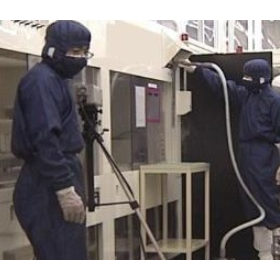Gluten-free verification testing for enhancing product added value and developing overseas markets.
Testing for the presence of gluten and scientifically verifying "gluten-free." Complies with international standards and certifications such as CODEX.
Our company offers gluten-free confirmation testing for gluten-free foods to report whether they contain gluten found in cereals. 【Features of the Testing】 ◆ Testing compliant with international standards and certifications We offer three types of ELISA kits introduced in CODEX standards and FDA regulations. You can choose the kit based on your purpose and sample. * We recommend selecting the types and number of kits based on the requests from our clients and certification organizations. ◆ Enhanced testing system tailored to customer requests We provide two types of courses: expedited (3 business days) and standard (10 business days). In case of emergencies, we support quality control in daily testing from both "speed" and "cost" perspectives. ◆ Proposal of analytical methods for highly processed foods The FDA warns that advanced degradation of gluten cannot be accurately detected; however, our company also accommodates measurements using the RIDA SCREEN Gliadin Competitive (competitive method) kit, which can compensate for this shortcoming. This method is also listed as an analytical method for highly processed foods in certification standards such as GFCO.
Inquire About This Product
basic information
≪Testable Forms≫ Food, etc. ≪Testing Method≫ ELISA method ⇒ This is a method for detecting proteins characteristic of each item through antigen-antibody reactions. ≪Used Kits≫ - Wheat/Gluten ELISA Kit (manufactured by Morinaga Bio Science Research Institute) ⇒ Quantifiable range: 1-20 ppm (μg/g) - RIDA SCREEN Gliadin (manufactured by R-Biopharm) ⇒ Quantifiable range: 5-20 ppm (μg/g) - RIDA SCREEN Gliadin Competitive (competitive method) kit (manufactured by R-Biopharm) ⇒ Quantifiable range: 10-90 ppm (μg/g) ≪Applicable Standards and Certifications≫ Currently, there are no regulations regarding the number of kits or methods used, but we offer ELISA kits introduced in the following standards and certifications: - CODEX standards - FDA standards - GFCO certification - AOECS certification ≪Sample Required Amount≫ Approximately 100 g
Price information
◆Gluten-Free Confirmation Test ELISA Method 1 Kit: 18,000 yen ~ ELISA Method 2 Kits: 34,000 yen ~ ELISA Competitive Method Test: 40,000 yen *Prices may vary depending on the selected course and number of kits. *Excludes consumption tax.
Price range
P2
Delivery Time
P4
※Results will be reported within 3 to 10 business days from the date of receipt.
Applications/Examples of results
Many requests from GFCO-certified companies and those exporting overseas! We have received inquiries from a wide range of food manufacturers, including those in confectionery, baking, seasonings, and health foods, covering everything from raw materials to final products, and we have satisfied them in terms of both price and delivery time. ≪Customer Feedback≫ ◆ For regular quality control of GFCO-certified products! (Rice processing industry) To enhance the added value of our products, we obtained GFCO certification and marked our products for sale. The key points in selecting a partner are whether they can conduct inspections using the kits specified by GFCO and whether they have ISO/IEC 17025 certification. Vision Bio meets both criteria and offers attractive low prices. ◆ For confirming labeling of products considering overseas export! (Alcohol manufacturing industry) We are exporting gluten-free beer overseas. The FDA has warned that traditional ELISA kits cannot accurately detect gluten that has undergone significant degradation, so we conduct tests using the ELISA competitive method. Even with degraded gluten, we can obtain more accurate values, which is extremely helpful.
catalog(2)
Download All CatalogsCompany information
Our company has achieved one of the top records and evaluations in Japan for contract testing services, including DNA testing, but we are not a so-called food inspection agency. What we truly aim for is to "provide new value to the world and contribute to society." Since our establishment in 1997, we have adhered to the mission of "turning the invisible into something valuable," focusing on the development of unique technologies and offering products and services that are unparalleled. Even after a quarter of a century since our founding, we continue to expand our business with a broad perspective, establishing diverse testing technologies, developing original products such as testing reagents and kits, and fostering talent through training and e-learning, all while not being constrained by established concepts.












